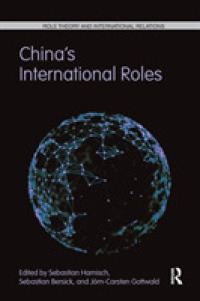- ホーム
- > 洋書
- > ドイツ書
- > Humanities, Arts & Music
- > History
- > miscellaneous
Description
(Text)
The papers collected in this issue illustrate how people have shaped global connectedness in five African and South Asian railway towns. It is not the railway and the material connections enabled by it that are at the heart of these histories, but rather how people made productive use of local conditions and the availability of the railway. At first sight, a northern English labour force in the Jamalpur locomotive workshop (India), the entrepreneurship of Otto Siedle in Durban (South Africa), cosmopolitan residential patterns in Elisabethville (present-day Lubumbashi, Democratic Republic of the Congo), the Belgian concession port in British-ruled Kigoma (Tanzania), and the self-organization of railway porters in Kapiri Mposhi (Zambia) are not the striking success stories of globalization. However, they tell us much about how globalization is produced and how processes of globalization are interlocked. Creative responses, building on locality, longevity, and long-distance connectivity, turned these places into centres of activity where at a particular time specific ways of globalization were produced. In order to understand globalization processes, we need to grasp these historically specific and distinctly local features that produce globalization.
(Author portrait)
Castryck, Geert Geert Castryck is senior researcher at the Centre for Area Studies of Leipzig University and visiting professor of African history at Ghent University. He teaches African and global history at both universities. He studied history and Oriental studies in Ghent and received his PhD in 2006 for a dissertation about the Muslim communities of Bujumbura (Burundi) in the colonial era. He has done research about remembrance education and colonial legacies, and since 2010 he works on a global history of the East Central African town of Kigoma-Ujiji.







